One of the very interesting sidebars around the current COVID-19 pandemic is the collapse in oil prices despite the efforts of the American President and Messrs Putin in Russia and the Saudi Price Mohammad Bin Salman Al Saud.
In recent weeks there has been a steady stream of pictures emerging of a previously polluted but now clean city somewhere in the world due to the fall off in traffic and other fossil-based pollutants. The hope when these issues are discussed is that the penny will drop that fossil fuel usage is choking the planet. However, here in Ireland no such debate appears to be taking place.
Instead the programme for government discussions have a very skewed and inaccurate focus on climate policy accounts which continue a non-scientific approach to agricultural emissions.
Accounting change
If you Google grass sequestration/climate change in Ireland you will find a number of articles in The Irish Times around 2006/7 from Dick Ahlstrom, the then environmental correspondent, emphasising how Ireland's famous grassland could be the saviour in regard to Ireland's overall emissions reduction challenges.
Roll forward to May 2020 and a headline also in The Irish Times says that Ireland's emissions reduction targets are not credible according to a senior civil servant because the targets in agriculture are too low. As I said in a previous article, the science of how our grassland operates as a huge carbon sink has not changed, but the accounting systems have – or more specifically, the accounting system chosen by Ireland have.
If Irish beef production is suppressed and Chinese demand for beef is met from Brazilian sources then in addition to the negative consequence for Irish beef farmers, global emissions as well as deforestation and land degradation will increase.
Unfounded blame
This calling out of agriculture as not bearing its rightful burden is perverse and unfounded and has done significant reputational damage to the sector. It has been very clear from this public commentary over the last number of years that politicians in Ireland were being advised that agricultural production must be capped or reduced, with restrictions to be applied to investment supports.
The huge national and regional economic downside of this reduction was to be wished away in a combination of increased forestry plantings (which have declined by 30% in recent years) and a greater contribution from foreign direct investment (FDI) which to date really doesn’t do much for rural Ireland. So the regulatory piece is direct, meaningful and costly, whereas the remedial piece is aspirational and vague.
The agri sector did not get to pick the accounting system that has been chosen in a non-scientific fashion, which effectively ignores one of the key advantages that Irish agriculture has possessed for years – a low intensity grass-based production system which results in not only low emissions from food production, but also incorporates a carbon sink.
The question must be asked again as to why Ireland, with the world's finest grassland, has chosen an accounting system to meet our global and EU commitments, based on burden sharing through rewetting of peatlands and increased forestry plantings while ignoring the huge capability that grass sequestration brings.
Clearly the ambitious target of increasing the proposed reduction target to 7.5% per annum has created a lot of discussion and comment. One interesting intervention came from John Fitzgerald, head of the National Climate Change Panel who commented that a simple change in fertiliser management could reduce our national emissions targets by 1% – a cheap win as he described it. It is indeed a cheap/easy win but the question is why not go for an easier, more natural win.
Grassland ignored
Looking back as far as the Kyoto protocol in the 1990s, there was explicit recognition of carbon sinks, such as grassland and forestry, as mitigators of carbon emissions from other sectors.
Yet Ireland in its adoption of our current climate change accounting policy – the burden sharing accounting system from 2018 to 2030 has decided to go for planting more forestry and rewetting of peatlands while ignoring a grassland sequestrating capability of between 20m and 30m tonnes of CO2 annually. Surely grassland mitigation and sequestration is an easy win.
The climate change panel's conclusion was that producing less beef means less money is lost and less carbon is produced
Reduction targets
Apparently not. Indeed one of the reasons we hear, as per The Irish Times, why the agriculture, and beef sector in particular, must be targeted for reductions in numbers is that if we don’t reduce agri emissions per the agreed accounts, there will have to be more done by other sectors including energy and transport. Would that involve greater reduction of fossil fuel usage in transport perhaps?
Utilising Ireland's 4.1m hectares of grassland as a huge carbon sink is the ultimate burden sharing factor and its proper scientific positioning is the ultimate burden share win. Plus as we know from the furore around the Mercosur trade deal in 2019, the harsh reality is if Irish beef production is suppressed and Chinese demand for beef is met from Brazilian sources then in addition to the negative consequence for Irish beef farmers, global emissions as well as deforestation and land degradation will increase.
In many of the diatribes against Irish agriculture mention is made of Intergovernmental Panel on Climate Change (IPCC) reports and what they supposedly say about western diets and yet in the most recent major report in July 2019, the IPPC not only stressed as per the Kyoto protocol and Paris accord, the importance of grasslands as a sequestrating mechanism.The report very specifically said that the overall climate change process would be undermined if carbon leakage assessment didn’t become a legally binding part of international trade deals.
Profit or loss
Very clearly, and recognising the bona fides of John Fitzgerald and the National Climate Change Panel, part of the reasoning for suggesting that beef farmers be persuaded to cease production and exit is that the published national accounts for beef farming, which were presented to the Citizens Assembly and other forums, show that most beef farmers lose money.
So the climate change panel's conclusion was that producing less beef means less money is lost and less carbon is produced. However, the published account numbers, by an agreed convention, don’t include direct supports to farmers. When direct payments and supports, which amount to €1.3bn annually to Irish agriculture, are accounted for the picture changes from chronic loss-making to a small positive income.
Moreover, falling incomes in beef farming in 2019 derive from a combination of the Brexit-driven fall in the value of beef exports to the UK and falling demand.
So in essence, the case against agriculture yet again is being made by means of a series of flawed accounting methodologies both on the climate change and economic impact aspects of the value of the sector. And while even with the proper addition of direct payments, beef incomes are low and challenging, probably the biggest reason beef farming continues is the personal social exchanges created through the buying and selling of cattle. In addition to the selling of approximately 1.8m cattle annually for processing to meat factories, which results in exports valued at €2.5bn annually, according to AIM,there are approximately 2m animals sold between farms and into and out of marts annually. The combined number of transactions between sales to factories and inter farm/marts is between 400,000 and 500,000 transactions as is farm-to-farm movements. Forestry doesn’t replace this.




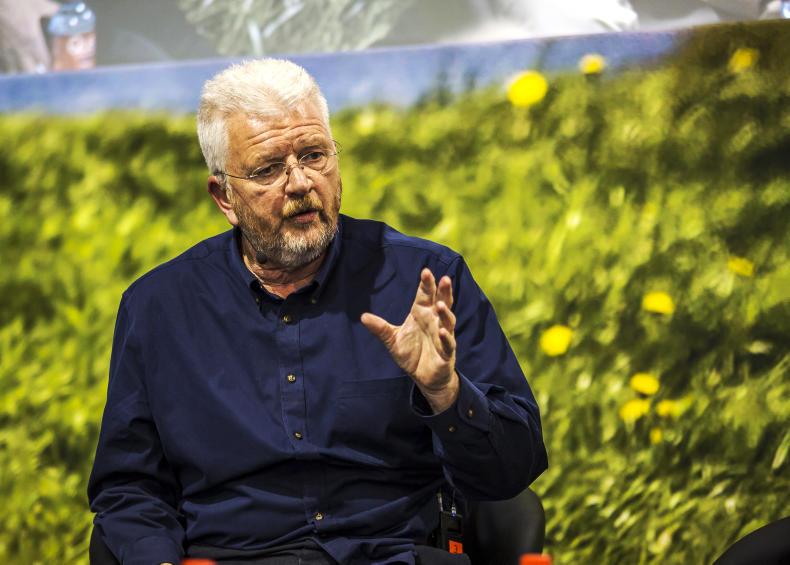
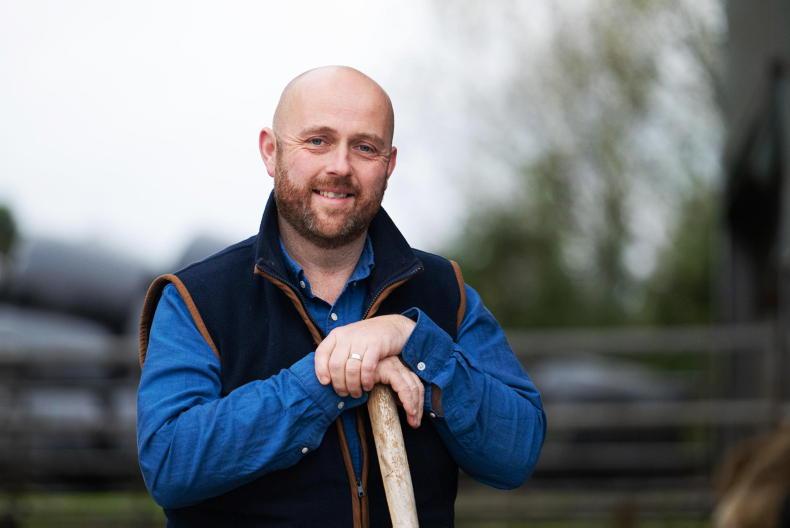

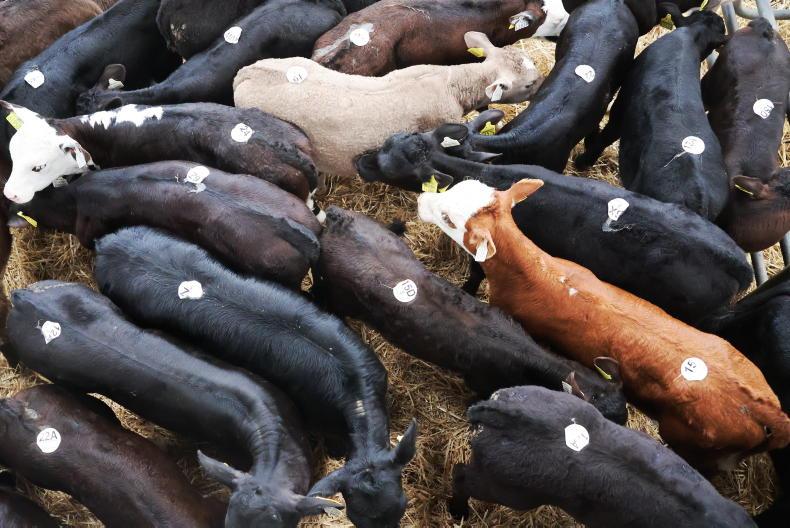
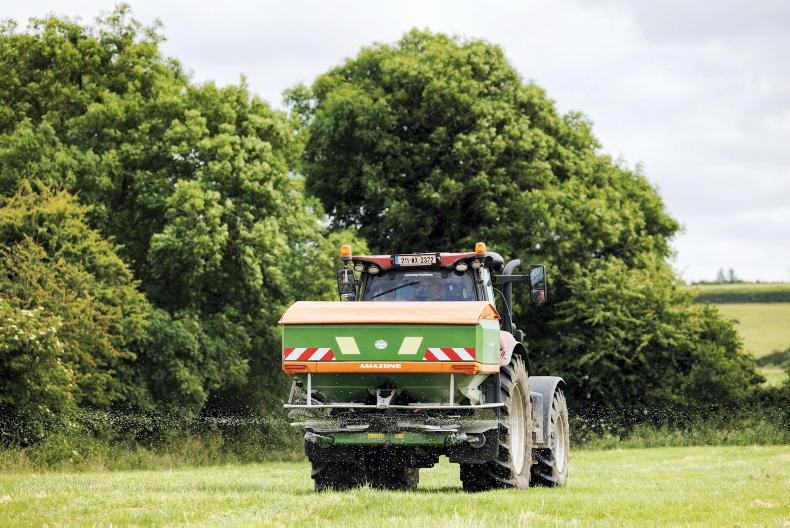
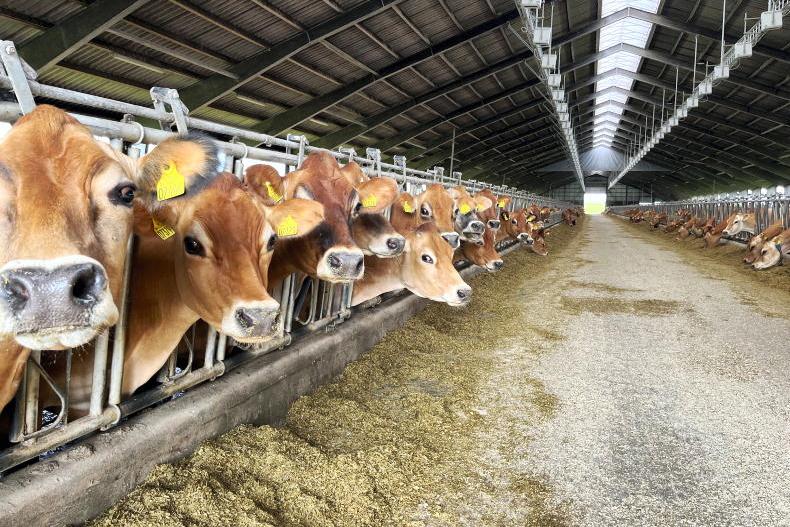
SHARING OPTIONS